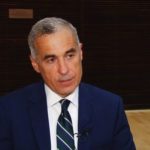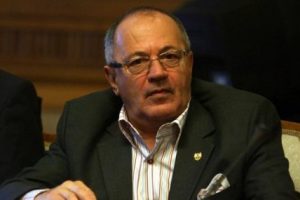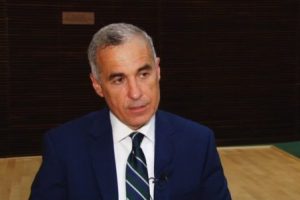 If the young are our future, then we’re in trouble. The results of two polls released this week give a glimpse of what young people in Australia think about democracy and free speech.
If the young are our future, then we’re in trouble. The results of two polls released this week give a glimpse of what young people in Australia think about democracy and free speech.
For anyone who thinks these two things are fundamental to our society, the figures are not pretty.
A poll for the Lowy Institute found that 23 per cent of respondents between the age of 18 and 29 said: “For someone like me, it doesn’t matter what kind of government we have.”
Thirty-eight per cent said: “In some circumstances a non-democratic government can be preferable.”
That’s more than half who said they would contemplate an alternative to democracy. Just 39 per cent said: “Democracy is preferable to any other kind of government.”
A poll for the Institute of Public Affairs (IPA) found that 29 per cent of respondents between the ages of 18 and 24 said government should regulate the opinions published in newspapers.
Fifty-three per cent said the government should not, and 18 per cent did not have an opinion.
It’s difficult to know what’s more worrying – that 29 per cent of young people had no problem with government censorship or that 18 per cent didn’t know whether they had a problem with it or not. It’s not much of a relief that a bare majority came out in favour of freedom of speech.
It would be easy to rationalise these results away. You could say that “democracy” is so vague and theoretical a concept that young people don’t really know what it means anyway, and if ever democracy as we understand it were actually threatened they would choose the right side. Or you could believe young people are naive. You could hope that as people get older and get some life experience, they get more sensible. These polls do, indeed, reveal a stark difference in attitudes between old and young.
Seventy-four per cent of respondents in the Lowy Poll who were aged 60 or older thought democracy was preferable to anything, compared with the 39 per cent of young people who thought the same thing. In the IPA poll only 11 per cent of respondents aged 50 or more thought government should regulate opinions in newspapers, which means young people are three times more likely than older people to believe in government censorship.
The line, supposedly from Winston Churchill, that “if you are young and not liberal, then you have no heart; but if you are old and not conservative, then you have no brain”, is funny, but not necessarily true. The evidence is unclear whether people’s attitudes actually do change as they get older and get a job and a mortgage.
There is an alternative explanation for all of this. Which is that these poll outcomes are not just what’s to be expected – they are in fact exactly the outcomes intended to be produced by our education system.
Put simply, students in schools and universities are taught that the ideal of democracy is but one value among many other values, and it is neither better nor worse than the alternatives.
The new national curriculum to be taught to every school student in Australia says very little about democracy and free speech. The priorities of the curriculum are that students understand Aboriginal and Torres Strait Islander history and culture, Asia, and sustainability.
The claims that whether democracy is a good thing or not depends on the context, and that democracy can be sacrificed to achieve other objectives, are widespread.
New York Times columnist and best-selling author Thomas Friedman famously said back in 2009: “One-party autocracy certainly has its drawbacks. But when it is led by a reasonably enlightened group of people, as China is today, it can also have great advantages . . . Our [America’s] one-party democracy is worse.”
The anniversary of Tiananmen Square was a few days ago.
The classic example of such thinking is the old chestnut: “Well, Cuba might not be a democracy but at least it’s got good health services . . .”
A professor at an Australian university wrote almost exactly this about Cuba in The Age a few months ago. Another Australian academic is renowned for recommending democracy be suspended so we can deal with climate change.
If these are the sorts of things students are being told by their teachers, it’s no surprise that young people would prefer Fidel Castro’s hospitals to democracy and free speech.
Australian Financial Review
source: Institute of Public Affairs












Adauga comentariu